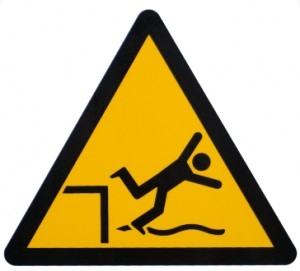
~ Vicki's Blog ~
-- Welcome -- About Me -- Fiction -- Non-Fiction -- Poetry -- Inspirational -- Young Adult -- Kids -- Awards --
-- View -- Memoir -- My Garden -- Flowers -- Tea Time -- Photos -- Faq -- Blog -- Store -- Links --

Posted May 20, 2011
"5 Common Writing Pitfalls"

My guest blogger for today is Kristen Lamb so get your Koolaid and munchies ready because this article is well worth reading for all wannabe writers out there, especially those who can't seem to tone down their adverbs.
From the blog of Kristen Lamb:
Before we get started, I would like to announce that my new book Are You There, Blog? It’s Me, Writer is now ready for purchase at B&N in e-book. This week, we are going to take a break from talking about the antagonist and, instead, focus on some common writing errors that seem to plague virtually all new writers. I generally like blogging about the larger issues, namely structure, because that is the killer. If the story’s plot is fatally flawed there’s little hope of connecting with a reader. If we need a Dungeon Master Guide and a team of sherpas to navigate our story’s plot, then finding an agent is the least of our worries. So plot matters, but, to be blunt, there other rookie mistakes that can land us in a slush pile before an agent (or reader) even gets far enough to notice a problem with plot.
So today I am putting on my editor’s hat and going to give you a peek into what agents and editors (and even readers) see in those first five pages that can make us lose interest.
If Your Novel has More Characters than the Cast of Ben Hur, You Might Need Revision
Whenever the author takes the time to name a character, that is a subtle clue to the reader that this is a major character and we need to pay attention. Think Hollywood and movies. If the credits roll and there is a named character in the credits, then we can rest assured this character had a speaking part. Many characters in our novels will be what Bob Mayer calls “spear carriers.” Spear carriers do not need names.
I did not know this, years ago, and I felt the need to name the pizza guy, the florist, the baker and the candlestick maker. Do NOT do this. When we name characters, it is telling our readers to care. Sort of like animals. Only name them if you plan on getting attached.
We do not have to know intimate life details about the waitress, the taxi driver or even the funeral director. Unless the character serves a role—protagonist, antagonist, allies, mentor, love interest, minions, etc.—you really don’t need to give them a name. They are props, not people.
And maybe your book has a large cast; that is okay. Don’t feel the need to introduce them all at once. If I have to keep up with 10 names on the first page, it’s confusing, ergo annoying. Readers (and agents) will feel the same way.
If Your Novel Dumps the Reader Right into Major Action, You Might Need Revision
Oh, there is no newbie blunder I didn’t make.
Angelique leaned out over the yawning chasm below, and yelled to Drake. She needed her twist-ties and fuzzy pink pipe cleaners if she ever was going to diffuse the bomb in time. Blood ran down her face as she reached out for Gregor’s hand. They only had minutes before Sondra would be back and then it would all be over for Fifi, Gerturde and Muffin.
Okay, I just smashed two into one. Your first question might be, Who the hell are these people? And likely your second question is Why do I care?
Thing is, you don’t care. You aren’t the writer who knows these characters and is vested. We have discussed before how Normal World plays a vital role in narrative structure. As an editor, if I see the main character sobbing at a funeral or a hospital or hanging over a shark tank by page three, that is a big red flag the writer doesn’t understand narrative structure.
Thing is, maybe you do. But, if we are new and unknown and querying agents, these guys get a lot of submissions. And, if our first five pages shout that we don’t understand narrative structure, our pages are likely to end up in the slush pile. When we are new, we get less leeway about trying to reinvent narrative structure, and the thing is, three-act structure has worked since Aristotle came up with it. There are better uses of time than us trying to totally remake dramatic structure.
It’s like the wheel. Round. It rolls. The wheel works. Don’t mess with the wheel. Don’t mess with narrative structure.
Some other picky no-nos… .
Painful and Alien Movement of Body Parts
Her eyes flew to the other end of the restaurant.
His head followed her across the room.
All I have to say is… “Ouch.”
Make sure your character keeps all body parts attached. Her gaze can follow a person and so can her stare, but if her eyes follow…the carpet gets them fuzzy with dust bunnies and then they don’t slide back in her sockets as easily.
Too much Physiology…
Her heart pounded. Her heart hammered. Her pulse beat in her head. Her breath came in choking sobs.
After a page of this? I need a nap. After two pages? I need a drink. We can only take so much heart pounding, thrumming, hammering before we just get worn out. That and I read a lot of entries where the character has her heart hammering so much, I am waiting for her to slip into cardiac arrest at any moment. Ease up on the physiology. Less is often more.
Adverbs are Evil…
Most of the time, adverbs are a no-no. Find a stronger verb instead of dressing up a weaker choice.
She stood quickly from her chair.
She bolted from her chair.
Also be careful of redundant adverbs.
She whispered quietly…
Um, duh. The verb whisper already tells me the volume level.
She can, however, whisper conspiratorially. Why? Because the adverb isn’t denoting something inherent in the verb. To whisper, by definition is to be quiet BUT not necessarily to conspire. The adverb conspiratorially indicates a certain quality to the whisper.
I will do more of these in the future, but the points I mentioned today are very common errors. Many editors and agents will look for these oopses to narrow down the stack of who to read. These are also habits that can frustrate readers should the book make it to publication. I know some of you are thinking of self-publishing and that is certainly a viable path these days. But, if we have 42 characters by page five? We are likely going to frustrate a reader.
Avoiding these pitfalls will make for far smoother, cleaner writing.

Some books to help you clean up your prose and become a master at your craft? Story Engineering by Larry Brooks is a MUST HAVE in your library. Another MUST HAVE reference? 102 solutions to Common Writing Mistakes by NY Times Best-Selling Author Bob Mayer,
What are some troubles you guys have? Maybe some questions you want me to address? Throw them up here. Takes a load off my brain so I don’t have to think this stuff up all by myself. Any tips, suggestions, books you recommend we read? Did this blog help you? Confuse you?
I love hearing from you! And to prove it and show my love, for the month of May, everyone who leaves a comment I will put your name in a hat. If you comment and link back to my blog on your blog, you get your name in the hat twice. If you leave a comment, and link back to my blog, and mention my book We Are Not Alone in your blog…you get your name in the hat THREE times. What do you win? The unvarnished truth from yours truly.
I will pick a winner every week for a critique of your first five pages. At the end of May I will pick a winner for the grand prize. A free critique from me on the first 15 pages of your novel. Good luck!
Note: I am keeping all the names for a final GRAND, GRAND PRIZE of 30 Pages (To be announced) OR a blog diagnostic. I look at your blog and give feedback to improve it. For now, I will draw weekly for 5 page edit, monthly for 15 page edit.
Important Announcements
Make sure you join our LOVE REVOLUTION over on Twitter by following and participating in the #MyWANA Twibe. Read this post to understand how this #MyWANA will totally transform your life and your author platform.
My book We Are Not Alone–The Writer’s Guide to Social Media hit THREE best-seller list on Kindle yesterday. #2 in Computers & Technology, #13 in Authorship and #17 in Advertising. THANK YOU!!!!! This book is recommended by some of the biggest authors AND agents in New York, so make sure you pick up a copy if you don’t have one already.
Also, if you want to learn how to blog or even how to take your blogging to a level you never dreamed possible…get your copy of Are You There, Blog? It’s Me, Writer today. Not only will this book help you learn to blog, but you will be having so much fun, you will forget you were supposed to be learning.
Happy writing!
Until next time…
http://warriorwriters.wordpress.com/